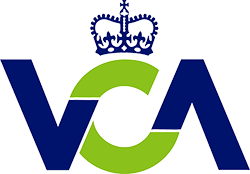![]() Type approval is the confirmation that production samples of a design will meet specified performance standards. The specification of the product is recorded and only that particular specification is approved. Type Approval issues are continuing to be mentioned to us in the course of our daily affairs.
Type approval is the confirmation that production samples of a design will meet specified performance standards. The specification of the product is recorded and only that particular specification is approved. Type Approval issues are continuing to be mentioned to us in the course of our daily affairs.
The ECWVTA Directive
The Whole Vehicle Type Approval (ECWVTA) directive for passenger and commercial vehicles is very important. A key objective of ECWVTA is the “harmonisation of the European market”, reducing trade barriers by creating a level playing field for companies wishing to sell their vehicles in Europe.
Ultimately the benefits of the system outweigh the negatives; it means all vehicles will be manufactured to the same high standards of road safety and environmental performance, therefore improving customer confidence and retaining more value in vehicles produced. For converters and manufacturers looking only to sell within the UK, and at lower volumes, there are two separate schemes – National Small Series Type Approval (NSSTA) and Individual Vehicle Approval (IVA) . These schemes are designed to maintain the ECWVTA standards whilst minimising compliance costs for low volume manufacturers.
Production Conformity
If you are going through NSSTA your CoP requirements will be reduced, and through IVA, CoP is not mandatory but in practice most bodybuilders and converters will work with the manufacturers to ensure there is no warranty compromise.
However, in some cases, IVA testing often ends up with a first-time failure, mainly because of minor points being overlooked. Don’t be disheartened; it could be a positive help in improving the product. The IVA tester will help and advise as much as he can. The DVSA appreciate that the IVA process is rather complex, and you will be given a 6-month return period, allowing you the time to make changes where needed.
Automotive EC Directives and UN Regulations (formerly known as UNECE Regulations) require third party approval, i.e. testing, certification and production conformity assessment by an independent body. Each European Union member state is required to appoint an Approval Authority to issue the approvals and a Technical Service to carry out the testing according to directives and regulations. An approval issued by one Authority will be accepted in all the member states.
VCA: The Vehicle Type Approval Authority

VCA is the designated UK Approval Authority and Technical Service for all type approvals to automotive EC Directives and most UN Regulations.
Advice to Multi-Stage Builders
The concept of multi-stage approval applies across the approval routes and is outlined in more detail here.
Many vehicles are built using a process whereby a base vehicle (normally a chassis or chassis/cab) is produced and then another manufacturer (normally a body builder or converter) subsequently finishes the vehicle. To complement this real life situation a Multi Stage Approval process is available to enable the chassis manufacturer to approve the chassis (the first stage) as an “incomplete vehicle”, when a body builder or converter approves the vehicle subsequently (a subsequent or final stage) it becomes a “completed vehicle”.
Sometimes “complete” vehicles will form the base vehicle in a process, for example where a panel van is converted into a minibus. There will always be two or more stages in the Multi Stage Approval process and each of the manufacturers is only responsible for the work done and CoP at their particular stage of the construction of the vehicle.
The flow of information between parties is extremely important in the multi-stage approval process, the manufacturer at any subsequent stage needs to understand the state of build of the vehicle at previous stages and whether any of their additions or modifications will affect the validity of the approval from previous stages. Body builders and converters will generally require access to the base vehicle manufacturer’s approval information.
The base vehicle will normally retain the “make” of the first stage manufacturer and Vehicle Identification Number (VIN) issued on the original Certificate of Conformity (CoC) to ensure that traceability is maintained. Manufacturers at subsequent stages have to add their own plate with their name, the stage of the approval, the VIN and the approval number plus any revised vehicle weight information.
Generally speaking it is possible to approve to an equal or lower standard at subsequent stages in the approval process. For example, if stage one has an approval to ECWVTA you can get either an ECWVTA or an approval under the national schemes. However, if stage 1 has a national approval you cannot get an ECWVTA based on that at stage two.
